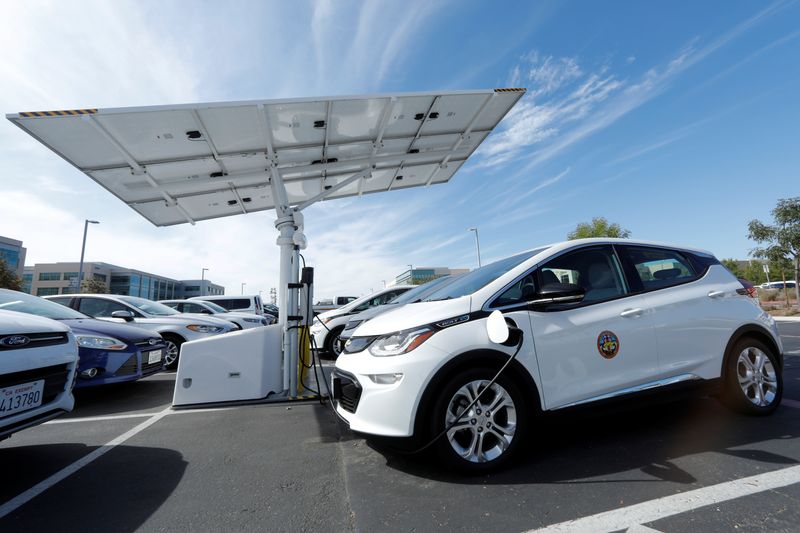By David Shepardson
WASHINGTON (Reuters) - More than 90% of U.S. households that own a vehicle would see a reduction in the percentage of income spent on transportation energy and reduce greenhouse gas emissions if they switched to electric vehicles, a new University of Michigan study found.
The study found households in some locations could reduce their annual transportation-energy costs by $600 or more by buying a new EV. But very high EV transportation energy burdens would continue for the lowest-income households, the study found.
More than half the lowest-income U.S. households - an estimated 8.3 million households - would continue to face high transportation energy burdens, however, the study found.
Factors contributing to low EV savings for some include cold winter temperatures impacting battery performance, electrical grids relying largely on fossil fuels and electricity prices.
The Transportation Department says U.S. households spent an average of $10,961 on transportation in 2021. Households in the lowest income quintile spent the least on transportation but faced a larger transportation cost burden, spending 27% of after-tax income on transportation compared to 10.4% by the highest income quintile.
"Our analysis indicates that future grid decarbonization, current and future fuel prices, and charging accessibility will impact the extent to which EV benefits will be realized, including lowering transportation energy burdens for low-income households," said study senior author Greg Keoleian, director of U-M's Center for Sustainable Systems.
The analysis does not include vehicle purchase costs. EVs are typically more expensive than traditional gasoline-powered vehicles. Congress approved an expansion of a $7,500 EV tax credit in August and a new $4,000 used car EV tax credit but imposed new eligibility restrictions.

U.S. Energy Secretary Jennifer Granholm said Friday at CES the Biden administration "is focused totally on bringing down the costs of energy for people" and said vehicle owners are saving $35 on average to recharge an EV versus filling up a traditional gas tank.
She pointed to General Motors (NYSE:GM) Chevrolet Bolt, an electric vehicle that starts at $26,500. After a $7,500 tax credit that is "doable for many people."